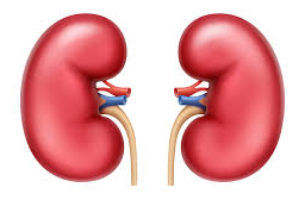People in 50s should focus on 4 big health factors People approaching 50 should be aware of the ‘big four’ health factors when it comes to keeping healthy in later life. If you look after yourself now, it will really help you, as you get older and more frail. 1. Self-help and screening Self-help (being […]
Read More5 patient types – and how to deal with them In this article we will describe the 5 patient types – and how to deal with them. Benefits of understanding patient types By understanding patient types, doctors can: Build rapport and trust with patients Improve patient satisfaction Enhance patient compliance with treatment plans Reduce the […]
Read More10 virus facts Here are 10 key facts about viruses: Definition: Viruses are tiny, infectious organisms that replicate inside the cells of living organisms, causing a range of diseases Structure: Viruses consist of a protein coat (capsid) surrounding a core of genetic material, either DNA or RNA Types: There are several types of viruses, including: […]
Read More10 bacteria facts E Coli bacteria Here are 10 key facts about bacteria. Definition: Bacteria are single-celled microorganisms that lack a nucleus and other membrane-bound organelles. Instead of a nucleus, they have a nuclear region called a nucleoid where their DNA is located. Types: There are two main types of bacteria: Gram-positive (e.g. Staphylococcus […]
Read More10 acute pyelonephritis facts In this article we will describe 10 acute pyelonephritis facts, focussing on its symptoms, causes, and treatment. 5 Key Points Acute pyelonephritis is a bacterial infection of the kidneys that requires prompt treatment It is more common in women than men, especially during pregnancy The most common cause is Escherichia coli […]
Read More20 red flag symptoms (acute and chronic) What is a red flag symptom? A red flag symptom is something abnormal about your body or mind, that may indicate something is significantly wrong. ‘Red flag’ means potentially serious (and potentially treatable). See you doctor soon (even today) if you think you have one. So. What are […]
Read More10 most important drugs in history Some drugs have the power to change the way we live. All of the drugs on this list had a immense impact on the evolution of medicine and the evolution of the human race. So. What are the 10 most important drugs ever invented? These are in chronological order, […]
Read MoreWhat does my blood GFR and urinr ACR mean – and how are they connected? Glomerular filtration rate (GFR) This is a blood test that measures kidney function – the higher the GFR, the better the kidney function, the better. A normal eGFR number is 90-120 ml/min. What is GFR used for? The GFR is used […]
Read MoreHistory of body mass index (BMI) measurement The BMI calculation was created by a Belgian mathematician — not a doctor or health practitioner. In the 1830s, Lambert Adolphe Jacques Quetelet set out not to devise a test to quickly diagnose obesity (which was still years away from being widely perceived as a problem), but to […]
Read More10 high blood pressure myths In this article we will describe 10 blood pressure myths. Let’s start with the basics. Key Points Myth: Normal blood pressure is 130/80 (there is no such thing as normal blood pressure) Myth: You can ‘feel’ your BP (you cannot 99% of time; it’s a silent problem) Myth: BP goes […]
Read More









